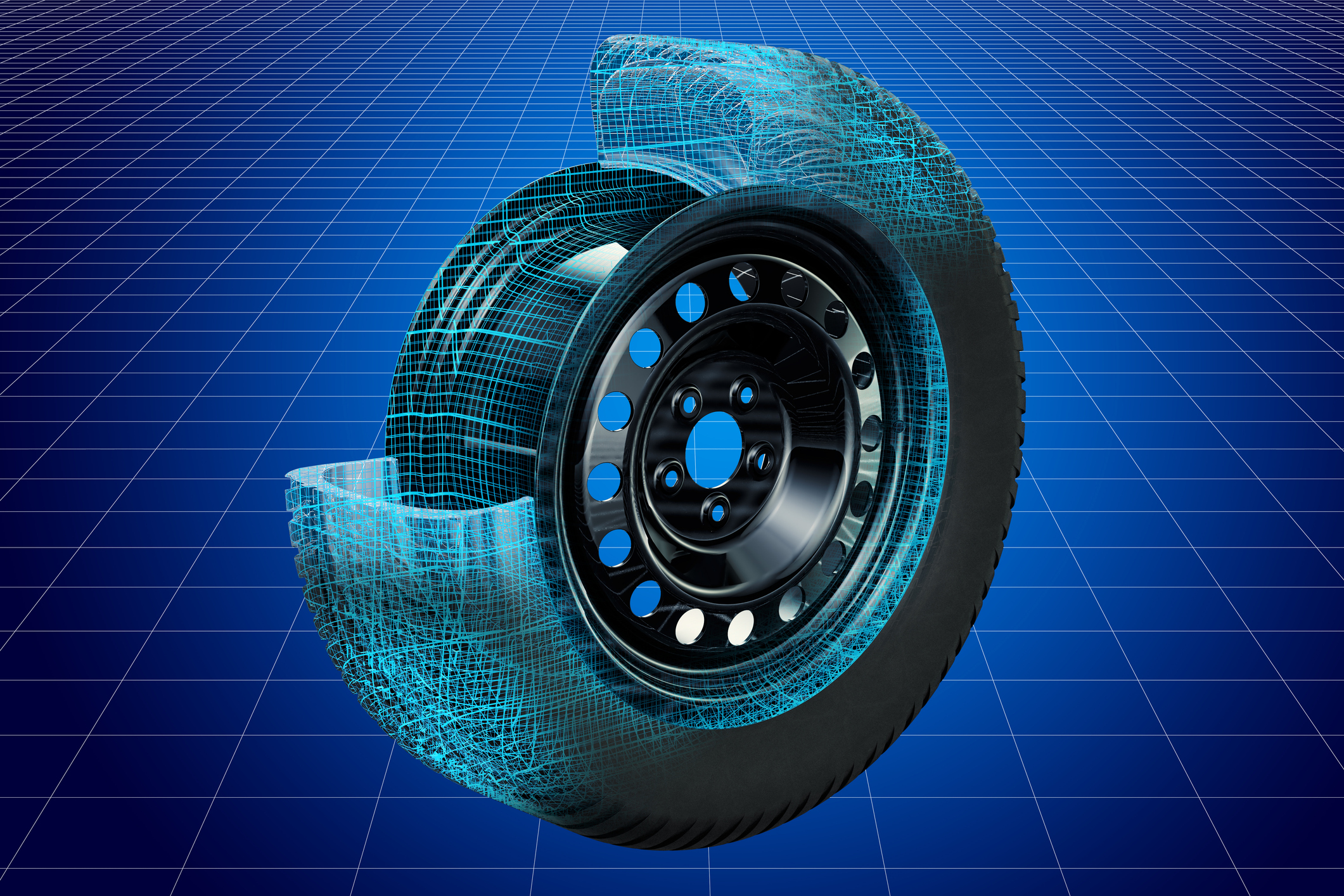Note: This article was first published in the October 2024 Edition of FleetDrive
Tyres are essential to any vehicle, and their condition can significantly impact fleet performance. However, monitoring and managing tyre health can be challenging for fleet managers. This is where intelligent tyre systems come into play. These advanced technologies help improve fleet vehicles’ safety, efficiency, and overall performance.
What Are Intelligent Tyre Systems?
Intelligent tyre systems use advanced technologies to monitor tyre conditions in real-time. These systems typically include sensors that track important data like tyre pressure, temperature, tread depth, and wear.
The information collected is transmitted to fleet managers via software or apps, allowing them to make informed decisions about maintenance and repairs. By having access to real-time data, fleet managers can ensure that their vehicles are operating at optimal levels, reducing risks and improving performance.
Smart Tyre Systems Today
Bridgestone Intelligent Tyre Technology: In 2023, Bridgestone released its intelligent tyre system. This technology includes sensors that keep track of how the tyre performs and how the vehicle drives. It can warn drivers about potential problems, helping to keep everyone safe and improve fuel efficiency.
Continental’s ContiSense and ContiAdapt: Continental launched ContiSense and ContiAdapt in 2024. ContiSense has sensors that check tyre pressure, temperature, and tread depth, sending alerts to drivers when something is wrong. ContiAdapt can change the tyre’s performance based on the road conditions, making driving safer and more comfortable.
Pirelli Cyber Tyre: Pirelli’s Cyber Tyre, introduced in 2022, has built-in sensors that monitor its temperature, pressure, and the road conditions. This data helps the vehicle’s systems improve safety by warning drivers about issues before they become serious.
Goodyear Eagle 360 Urban: In 2022, Goodyear launched a concept tyre called the Eagle 360 Urban tyre. This unique tyre has a spherical shape and uses AI technology. It comes with sensors that check tyre pressure, temperature, and tread wear. The tyre can adjust to different driving conditions, making it safer for city driving.
Michelin Vision Concept Tyre: Michelin introduced the Vision Concept Tyre in 2023. This tyre not only uses smart sensors to monitor its condition but is also made to be eco-friendly. The sensors send information about the tyre’s wear and alert drivers when maintenance is needed. This design focuses on being both smart and sustainable.
Key Benefits of Intelligent Tyre Systems
Improved Safety: One of the main benefits of intelligent tyre systems is enhanced safety for drivers and vehicles. Properly inflated tyres provide better grip and handling, reducing the risk of accidents. Intelligent tyre systems can alert drivers and fleet managers when tyre pressure falls below recommended levels. This immediate feedback allows for timely adjustments, which can prevent blowouts and loss of control.
Fuel Efficiency: Fuel costs can significantly impact a fleet’s overall expenses. Intelligent tyre systems help improve fuel efficiency by ensuring that tyres are always at the optimal pressure. When tyres are properly inflated, vehicles consume less fuel. According to the Australian Government’s Department of Climate Change, Energy, the Environment, and Water, maintaining correct tyre pressure can improve fuel economy by up to 3 per cent.
Reduced Maintenance Costs: Monitoring tyre conditions through intelligent systems can help fleet managers identify potential issues before they escalate. For example, if sensors detect unusual wear patterns or temperature fluctuations, fleet managers can take proactive measures to address these problems. By catching issues early, fleets can avoid costly repairs and extend the life of their tyres.
Enhanced Fleet Management: Intelligent tyre systems can integrate with telematics and fleet management software, providing valuable insights into vehicle performance. Fleet managers can track multiple parameters, such as tyre wear rates, pressure levels, and temperature changes, in real time. This data helps them make informed decisions about tyre rotations, replacements, and overall fleet management strategies.
By analysing this data, fleet managers can optimise their operations. They can determine the best times for maintenance, predict when tyres need replacing, and ensure that all vehicles are operating efficiently.
Sustainability and Environmental Impact: Many companies are committed to sustainability, and intelligent tyre systems can support these goals. By ensuring that tyres are always inflated to the correct pressure, fleets can reduce their carbon footprint. Efficient fuel usage leads to lower emissions, which is beneficial for the environment.
Moreover, using intelligent tyre systems can help extend the life of tyres, reducing waste. Instead of frequently replacing worn-out tyres, fleets can monitor their condition and replace them only when necessary. This not only saves money but also supports more sustainable practices.
Conclusion
Intelligent tyre systems offer numerous benefits for fleet managers—from improved safety and fuel efficiency to reduced maintenance costs and enhanced fleet management, these systems can help fleets operate more effectively. As the technology advances, we can expect even more innovations that will further improve tyre management and overall fleet performance.
By embracing intelligent tyre systems, fleet managers can ensure their vehicles are safe, efficient, and environmentally friendly. As the demand for sustainable practices increases, investing in these technologies will not only enhance fleet operations but also contribute to a greener future.


















